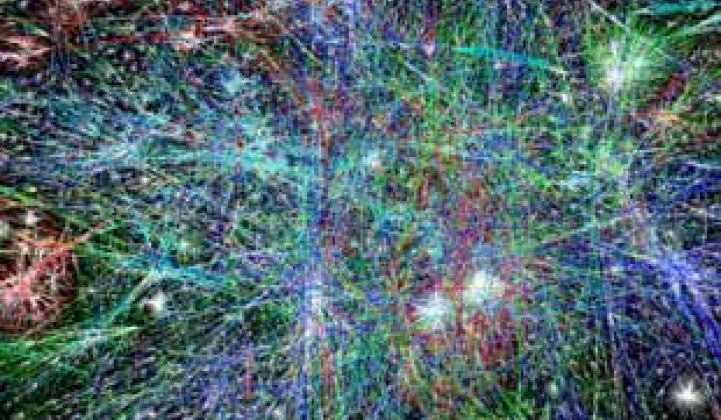Twitter is not responsible for the falling rates of coal for electricity in the U.S. The internet cannot climb onto your roof to install a solar panel. Your smartphone does not separate paper from plastic containers for recycling.
But there is a movement afoot where social media, IT, big data and mobile communications could upend how we use limited resources in the future.
“It's time to blow up these outdated markets,” Rob Day, a partner with Black Coral Capital, wrote after attending his first Cleanweb Hackathon. “And no one is better positioned to do so than good, solid web and IT entrepreneurs.”
Cleanweb could do just that. “Cleanweb is a grassroots movement committed to solving the world’s most profound issues related to resource constraints through the application of information technology,” according to The Cleanweb Initiative.
It’s not just a bunch of developers in a renovated warehouse (although there’s some of that too). Government agencies, utilities and large energy companies are all leveraging open data, social media and mobile communications to transform how they do business and drive down energy use.
One of the most obvious applications is energy efficiency. Home energy management firm Opower is partnered with Facebook, while commercial energy management firm Lucid works with Honest Buildings to bring energy to its platform. Software startups like FirstFuel and Retroficiency are trying to change the way large buildings assess energy use and potential retrofits.
The cleanweb movement goes far beyond just conserving electricity. Firms that offer car sharing services, such as Zipcar or RelayRides (which recently acquired Wheelz), are part of the trend to leverage IT to do more with fewer resources. InnoCentive, a marketplace for open innovation, helps private companies or government entities solve internal challenges by creating prize competitions for its members. Recyclebank allows people to earn points and hold school competitions for recycling.
The Bay Area also doesn’t have a monopoly on cleanweb, either. The Cleanweb Initiative has communities across the U.S. and in Europe with regular events to come up with solutions for problems both local and global.
Join us in New York City on Wednesday, May 22 to explore whether cleanweb is an exciting but limited trend or a transformational way of doing business.
The panel, hosted by Solar One and NYC ACRE, will feature Ron Gonen, Deputy Commissioner of Sanitation, Recycling, and Sustainability at the New York City Department of Sanitation; Riggs Kubiak, co-founder and CEO at Honest Buildings; and Blake Burris, CEO and chief hacktivist at Cleanweb Initiative.
For more information about the event, click here.



